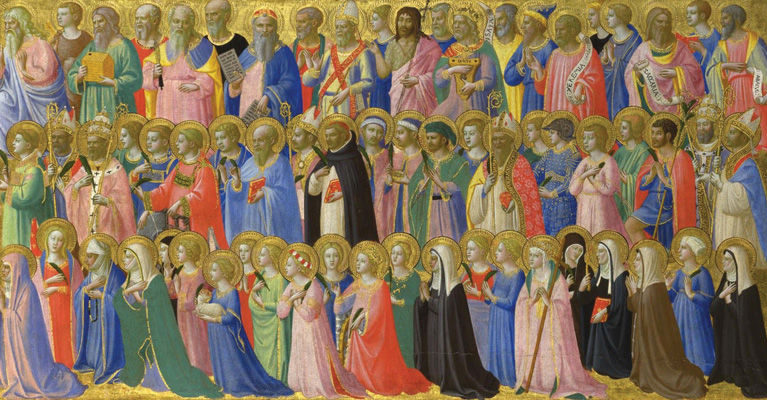
Every year in the Christian Church we celebrate All Saints’ Day. Some of us merely give the occasion a humble nod and some of us make a dramatic celebration of it. But either way, nearly everyone acknowledges that the practice of a faithful life has had its heroes and it’s fitting to acknowledge them. They are our saints.
A particular hero of faith for us is Etty Hillesum. As a young Jewish woman she lived in Amsterdam under Nazi occupation. Eventually she was deported to Auschwitz where, like so many others, she met her death. But though the attempt had been made to erase all evidence of her life, what lives on is truly extraordinary. You see Hillesum kept a diary for the last two years of her life, and in it she carefully recorded both the events of her day and her interior responses to them. And in her words we witness a firm and luminous goodness and a surprisingly durable faith.
From the horror of her place of imprisonment she wrote of profound gratitude. She wrote of the need to love one’s enemies. She wrote of her belief that we humans are all accountable to God and not the reverse. She wrote that despite her circumstances, she still found life beautiful and meaningful. Hillesum’s diary and her life testify to the possibility that constancy, compassion, goodness, and faith are all possible, even in the face of the worst that other human beings and life can offer us. They testify to God.
Of course, when we celebrate the saints we are really celebrating all those who, like Hillesum, have made God more real to us. By their lives they have given evidence of God and made God more believable.
Hillesum deserves our deepest respect and our admiration. But the author of the biblical Book of Hebrews would, we think, claim she deserves even more. She deserves our determination to continue her extraordinary legacy, so that, in the words of the Book of Hebrews, we might “perfect” what she began. All the heroes of faith, the author claims, need us to perfect them.
Now, does that seem audacious? Do they need us, really? Doesn’t the record of Abraham and Moses and David and Rahab and Sarah and Esther stand for itself? Does the Apostle Paul need us to be made perfect? Does Francis of Assisi or Mother Teresa need us to be made perfect? On one hand, of course not. And yet, perhaps the way any life demonstrates its significance most fully is by the impact it has upon those who witness it and make its influence manifest in their own lives. Maybe no one’s holiness is, after all, their exclusive personal property.
Of course, we all have our personal saints; those whose lives were near and dear to us; those whose lives bore witness to us of love, faith, compassion, generosity, or humility in special ways. Perhaps your saints include a husband or wife, a child, a grandparent, or a sister, or an uncle.
Isn’t it a wondrous thought that we retain the possibility of connection to the lives of our saints by carrying on their legacies? That’s the way we honor and perfect their lives in gratitude for all the ways they made God real to us. And perhaps, some day, others will carry on those aspects of our lives most worth preserving and emulating, and they will perfect us, too!



